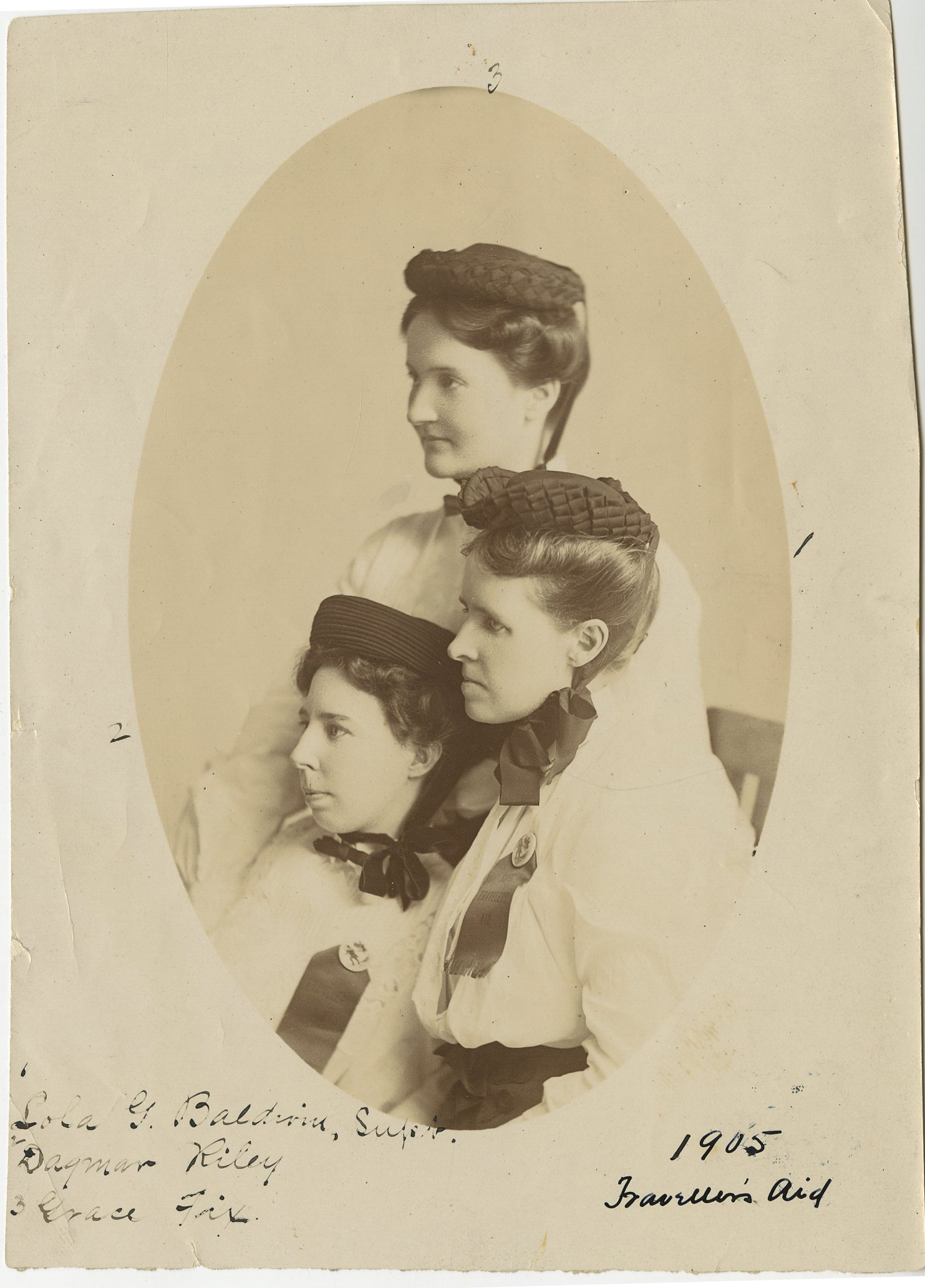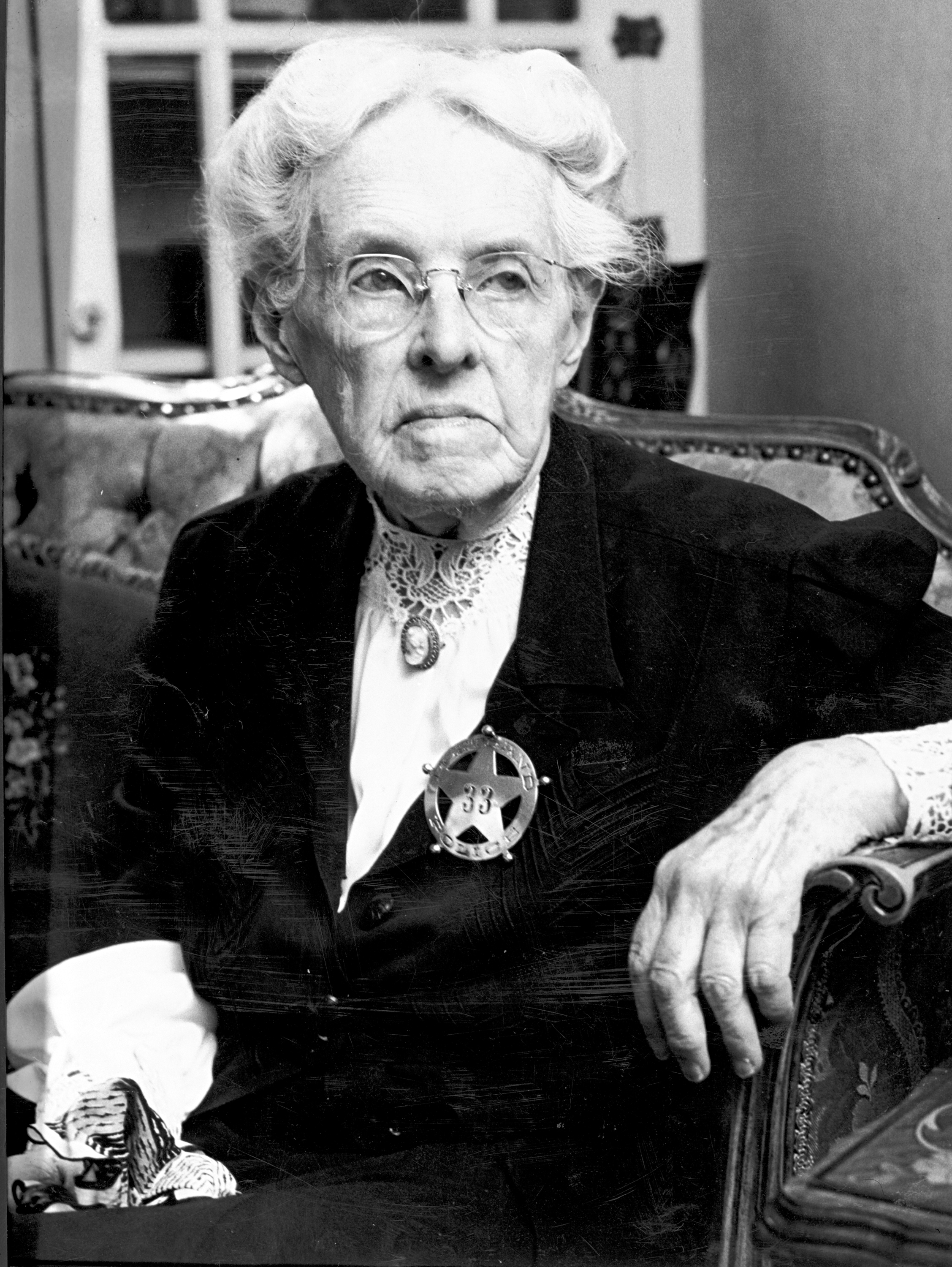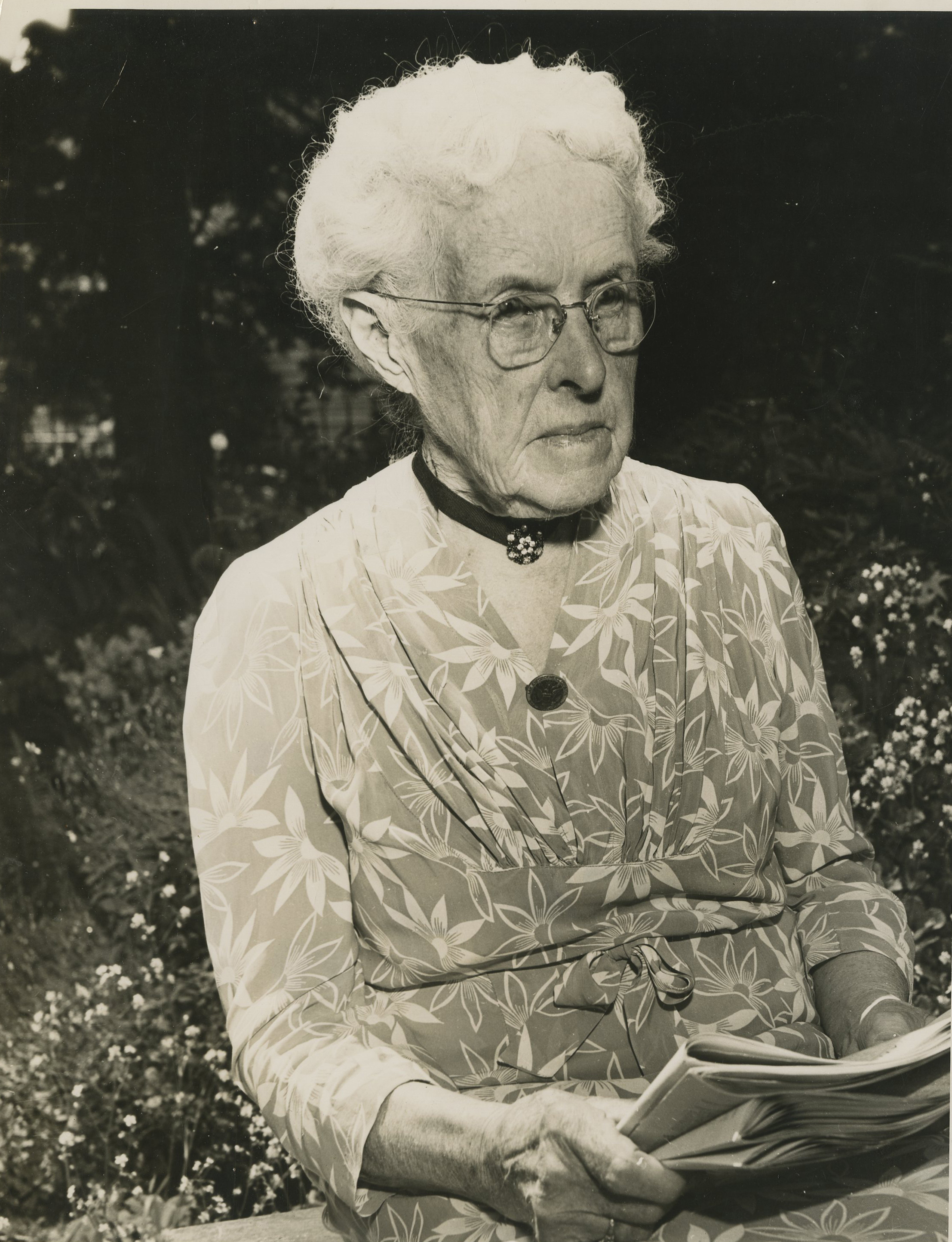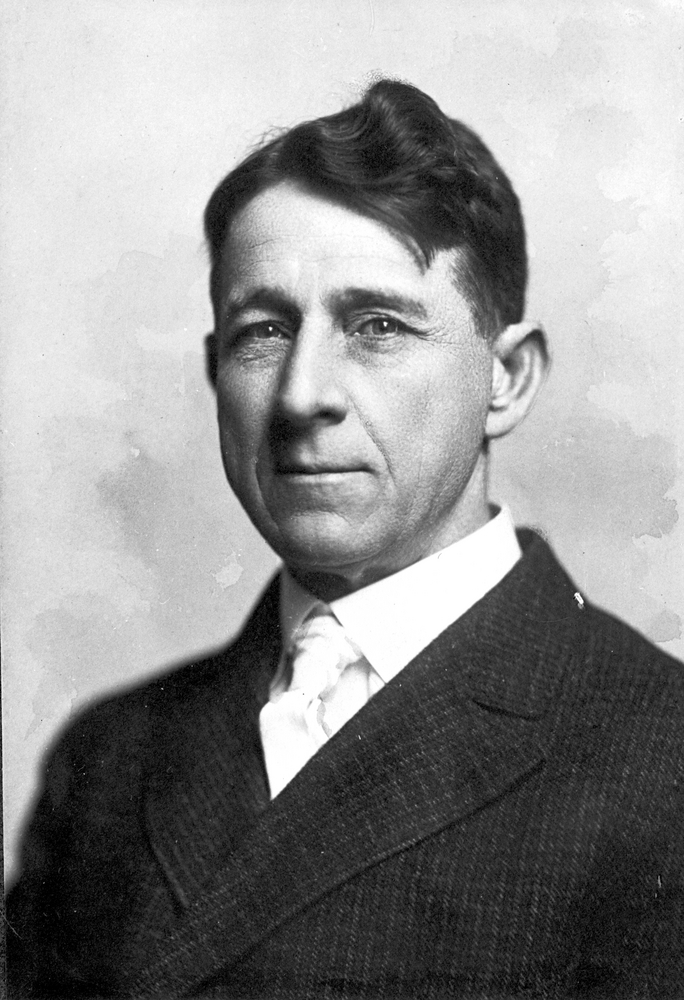On April 1, 1908, Portland Mayor Harry Lane administered the police oath to forty-eighty-year-old Lola Greene Baldwin, the first woman hired under civil service rules in the United States as a fulltime paid law enforcement officer.
Born Aurora “Lola” Greene, she began her working life as a teacher in New York State and later taught in Nebraska. After her 1884 marriage to merchant LeGrand Baldwin, she took a job as a clerk in a Public Lands office. Because she had a keen interest in women’s and children’s welfare, she volunteered at institutions for unwed mothers and troubled juveniles.
The Baldwins moved to Boston in 1893, where LeGrand Baldwin took a position with the E.P. Charlton variety store chain. Charlton's sent LeGrand Baldwin and his family to Yonkers, New York, Norfolk, Virginia, and Providence, Rhode Island, where Lola Baldwin worked with delinquent girls and young women.
Many of the programs in which Lola Baldwin participated were sponsored by both religious and secular women’s organizations. For example, while in Providence she served on the board of and did investigative work for two Florence Crittenton homes for unwed mothers and the Rest Cottage Home for young female delinquents. She soon gained a reputation as a competent investigator and a compassionate and effective agent. Her investigations included conducting detailed interviews of young delinquents and often visiting their homes or workplaces. Her objective was to learn as much as possible about the girls and their situations in order to provide rehabilitation and guidance.
When LeGrand Baldwin relocated to Portland in early 1904 to open Charlton’s first West Coast outlet, Lola continued her voluntary investigative social work.
In late 1904, the New York-based National Travelers' Aid Association asked Portland’s Young Women’s Christian Association (YWCA) to sponsor a vice-policing program for the Lewis and Clark Exposition. The effort would target young females visiting the fair or filling temporary jobs associated with it. The idea was a response to a national “white slavery” scare, whose proponents claimed that innocent young women were enticed into vice during large conventions or lengthy events.
Baldwin had recently served on the committee that organized Portland’s Juvenile Court, and its head, Judge Arthur Frazer, had appointed her to be an unpaid probation officer for girls. The YWCA now hired her to supervise its Travelers' Aid program. Baldwin resorted to law enforcement and the courts judiciously; she preferred to use a pointed lecture, provide safe housing or employment, or devise other alternatives to help offenders avoid a police record.
When the Exposition closed in October 1905, Baldwin persuaded the YWCA to continue the program through donations. When support dried up during the financial downturn of 1907, she appealed to Mayor Harry Lane and the Portland City Council to fund her work in the interests of the welfare of the city’s young women and girls. She reminded the council that it had recently earmarked $6,000 for the city dog pound and asked for half that annual amount to care for Portland’s straying daughters. The council approved the appropriation with the stipulation that she and any assistants pass the civil service exam for police work.
Detective Lola Baldwin supervised the officers of the Portland Police Department Women’s Protective Division from 1908 to 1922. She had a major impact on state and federal law enforcement and penology. She advised the Portland Vice Commission, championed the city’s Domestic Relations Court, and served as Oregon State Special Agent for vice control.
In 1912, she pushed for the creation of the Hillcrest Oregon Industrial School for Girls near Salem. Six years later, she obtained federal funding for the Cedars Venereal Detention Facility for Women near Portland. Beyond this, the U.S. Attorney’s Office in Portland commissioned Baldwin as an investigator for Immigration Bureau cases involving interstate prostitution. During World War I, the Federal Commission on Training Camps appointed her its West Coast supervisor for vice control near military facilities.
After her retirement in 1922, Baldwin served numerous terms on the Oregon Parole Board and the National Board of Prisons and Prison Labor. Until her death at age ninety-seven, she remained a passionate advocate for women in police service.
-
![Lola Baldwin, about 1890.]()
Baldwin, Lola, ca. 1890, bb003366.
Lola Baldwin, about 1890. Oreg. Hist. Soc. Research Lib., bb003366
-
![]()
Lola Baldwin (right), Dagmar Riley, and Grace Fix, 1905.
Courtesy Oregon Hist. Soc. Research Lib., Org. Lot 388, f11
-
![Lola Baldwin, age 94, in March 1954.]()
Baldwin, Lola, bb003191.
Lola Baldwin, age 94, in March 1954. Oreg. Hist. Soc. Research Lib., bb003191
-
![]()
Lola Baldwin.
Courtesy Oregon Hist. Soc. Research Lib., Mss388, f11
Related Entries
-
Harry Lane (1855-1917)
Harry Lane epitomized the spirit and activism of Oregon’s progressive r…
-
![Penny Ledyard Orazetti Harrington (1942–2021)]()
Penny Ledyard Orazetti Harrington (1942–2021)
On January 24, 1985, Penny Ledyard Orazetti Harrington was sworn in as …
Related Historical Records
Map This on the Oregon History WayFinder
The Oregon History Wayfinder is an interactive map that identifies significant places, people, and events in Oregon history.
Further Reading
Myers, Gloria E. A Municipal Mother: Portland's Lola Greene Baldwin, America's First Policewoman. Corvallis: Oregon State University Press, 1995.






